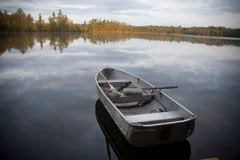
by Mary Schmich of the Chicago Tribune
June 15, 2007
The days are long now.
The early birds wake you up at some insane hour, yakking away like drunks staggering home from an all-night party.
You could get up then too, with the morning light just creeping in and the world still in a lull except for the noisy birds and the air conditioners of neighbors who like summer at the temperature of a morgue.
You could get up and put all this extra light to use. Study. Garden. Bike. Bake. Run. All before 8 a.m. Seize the rays!
Or you could just lie there and watch the slow illumination of the room and think about how to spend these few long days that will never come again.
Tell me, what is it you plan to do
With your one wild and precious life?
Those are the final lines of a poem someone gave me one day last winter. It's by Mary Oliver and called "The Summer Day."
I don't know exactly what a prayer is.
I do know how to pay attention, how to fall down
into the grass, how to kneel down in the grass,
how to be idle and blessed, how to stroll through the fields,
which is what I have been doing all day.
Tell me, what else should I have done?
Doesn't everything die at last, and too soon?
Tell me, what is it you plan to do
With your one wild and precious life?
There's more to the poem, but it's those final lines that get stuck in your head like chewing gum in your hair, that knock on your mind with the force of a dare.
So, sucker. What exactly are you going to do with your one wild and precious life?
Good luck getting that thought out of your head now that it's been planted.
What you're going to do with your one life is a question for all seasons, but it squeezes you in a particular way on these days when there are 15 hours and more from sunup to sundown, with the bonus light of dawn and dusk on either end.
Time and light are related. If you live in a place that's often cold and dark, you don't have to be an Einstein to know that. In places like Chicago , the gift of light feels like the gift of hours.
"Light does not age," I read recently. The line referred to the theory of relativity, and I'm not sure what it means scientifically, but the poetry of it feels true.
The long days this time of year create the illusion that time has slowed down, been stretched, looped back on itself, restored some part of yourself that seemed gone.
The extra light feels like an extended warranty on life.
Every summer I write down -- and occasionally write about -- my summer to-do list. Every summer, the list is a contest between idleness and industry.
To-do:
Walk before breakfast.
Walk after dinner.
Read for pleasure before breakfast.
And after dinner.
Eat outside for breakfast, dinner, lunch.
Find a beach.
Eat blueberries.
Watch the shadows in the trees.
Do more of everything good.
Do less of everything else.
Do more of nothing.
A thing not to do:
Rush.
When the days are long, the nights are different too, and they invite you to act differently.
A few nights ago, a couple of my friends went out. It was late, way too late for people their age to be embarking on the evening, but when the days are long, the night can seem young even when it's not.
They were strolling around their neighborhood when a man rode up on a bicycle. He had a chair on the back and offered them a ride. They rolled through Chicago in the warm night like emperors in a rickshaw, seeing the place they live from a different angle, at a different speed.
That's the kind of thing worth doing with your one wild and precious life.
So consider this your summer challenge. And if you needed more incentive, here's this: Next week, at the official start of summer, the days start getting shorter.
----------
mschmich@tribune.com
Copyright © 2007, Chicago Tribune
